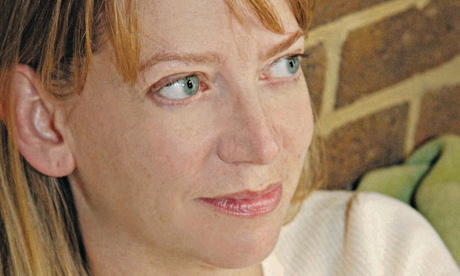
Katherine Heiny has written more than 20 young adult novels under various pen names. Her short story How to Give the Wrong Impression was published in the New Yorker in 1992 when she was 25. The short story collection Single, Carefree, Mellow is her first book as Katherine Heiny. She lives in Washington DC with her husband Ian McCredie, a former MI6 agent, and their children.
Short story collections are notoriously difficult to get signed. Why do you think that is?
I don’t know how it started – whether it was readers or publishers – but the prevailing wisdom when I was in graduate school was that you lead with a novel, that you don’t want to be typecast as a short story writer because they don’t sell. But then Olive Kitteridge [by Elizabeth Strout, 2008] won the Pulitzer prize, and that was a collection of stories. Maybe it has to do with people having less time to read but, for whatever reason, short stories seem to be going through a renaissance right now.
What do you like about the short story format?
I like that you can get in and out quickly: there’s time to hit a few high points and minimise your damage. Maybe it’s a commitment issue – I can write a story in a second person, but I didn’t ever feel I could write a novel like that – it would be way too much of a good thing. But, having said that, I’m working on a novel for next year which will be very different from the collection.
Who are your literary idols?
I’m a huge fan of Anne Tyler, and a lot of her novels are like linked short stories. I’ve loved Stephen King for ever. The first time I moved to London was in 1996 and the first two books I read were Bridget Jones’s Diary and High Fidelity, and I was like, “Oh my God, this is the greatest country in the world”. I really like Tessa Hadley’s short stories. Kate Atkinson writes really neat, funny sentences. Lionel Shriver is very powerful: she can describe a fictional world and make you believe that she’s an actual person in it.
Lots of the protagonists in the short stories are writers. To what extent do they show different aspects of yourself?
Are they? I guess they’re writers or editors or librarians – not far from the book theme. These are jobs that I’ve had, so that was probably the easiest thing for me. I guess Sasha [in The Dive Bar] is kind of clueless, and I’ve always been kind of a clueless person. A lot of the others are wilfully self-deceptive, and that’s not me.
In several stories, the “other woman” doesn’t get her comeuppance, but actually ends up quite happy. Do you think protagonists need to be moral or likable?
No, I think that if they were, you’d have really boring short stories and novels. I find fiction where people behave in really unsympathetic ways that you can’t understand frustrating. But if you read a book where everybody makes all the right choices, then you don’t have any conflict, and that’s the basis of fiction and drama.
There are lots of stories about adultery. Does your husband ever get worried?
No! I always talk to him when I’m writing and he helps me with lots of stuff. On one story he said: “I want the husband to be older and British and a mathematician.” I told him, “Everyone’s going to think that’s you,” and he was like: “Why? Why would they think that?” He doesn’t ever make that leap. He’s the perfect reader, because he never takes anything personally. Lots of times I start out writing a story about something very small, but then it needs another element, so the infidelity is something I add in to give it a little forward momentum.
The title is Single Carefree Mellow, yet many of the women are married, and very few are carefree or mellow. How did you choose the title? Do we idealise single life?
Yes – it’s an ironic title. When you’re single you have this other host of problems. Maybe no state is perfectly dreamy.
Lena Dunham is a fan of your work. How does that feel?
I was really speechless. I think Girls is a brilliant comic achievement. Especially in the first season, there would be times when I’d be watching it and I’d be so overcome with jealousy over the comic timing that I’d have to go to bed early.
Single, Carefree, Mellow is published by Fourth Estate, £12.99. Click here to buy it for £10.39

